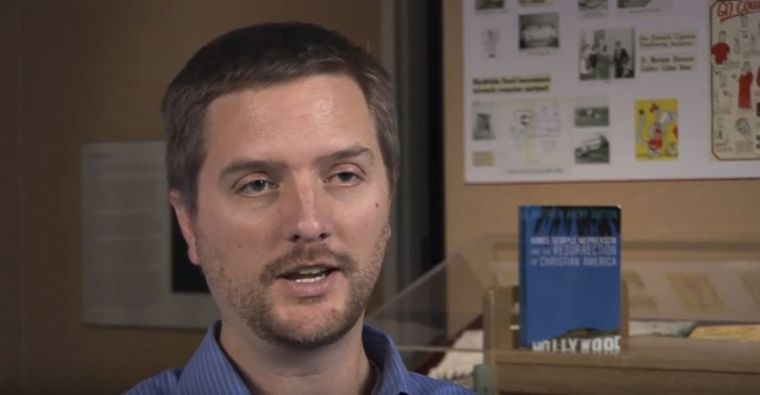Book to expose religious spies working for U.S. government in World War II

A book by a university professor will expose the secret religious spies during World War II.
"(Un)Holy Spies: Religion and Espionage in World War II" by Washington State University (WSU) history professor Matthew Sutton will uncover the role of religious figures and clergy in secret U.S. government operations during the time of President Franklin Roosevelt, according to the WSU. It will be published in 2019.
The book has been granted a $50,000 Public Scholar Program grant by the National Endowment for the Humanities, part of the $79 million the agency granted for 290 humanities projects and programmes in the U.S.
Sutton will be allowed to continue "doing cutting-edge research and making it accessible to the broader public."
He has discovered never-before-seen archieval materials that detail a "secret army" whose activities "laid the foundation for the development of the CIA and continue to influence U.S. policy today," Sutton said.
During the term of Roosevelt, U.S. Strategic Services director William "Wild Bill" Donovan secretly recruited influential missionaries, priests and Christian activists for espinage and covert operations, according to the professor.
"Donovan and FDR, in their explicit use of religion and religious activists, laid the foundations for the rise of the CIA, the Cold War-era crusade against 'godless communism,' and, more recently, George W. Bush's 'war on terror,'" he said.
Among the recruits were a German priest, a future CIA director and a fundamentalist Christian missionary-turned-spy.
"Roosevelt drafted 10 million men to serve in World War II, and he drafted God, or at least some of God's most valuable earthly agents. Their stories have not been told. Until now," Sutton explained.
The book will highlight "the substantial but little-known role that religion played in World War II as President Roosevelt pushed Americans to see global religious freedom as fundamental to American security for the first time," Sutton said.
"It also illustrates how religious activists' entwining of faith and patriotic duty made them some of the nation's best spies, willing to sacrifice everything to execute their missions," he said.











